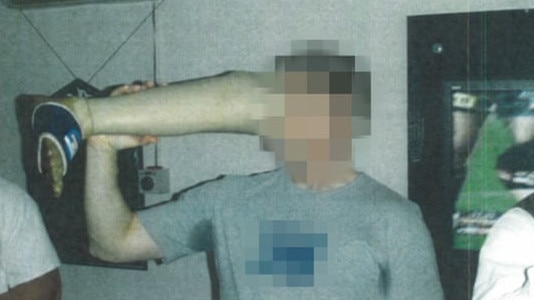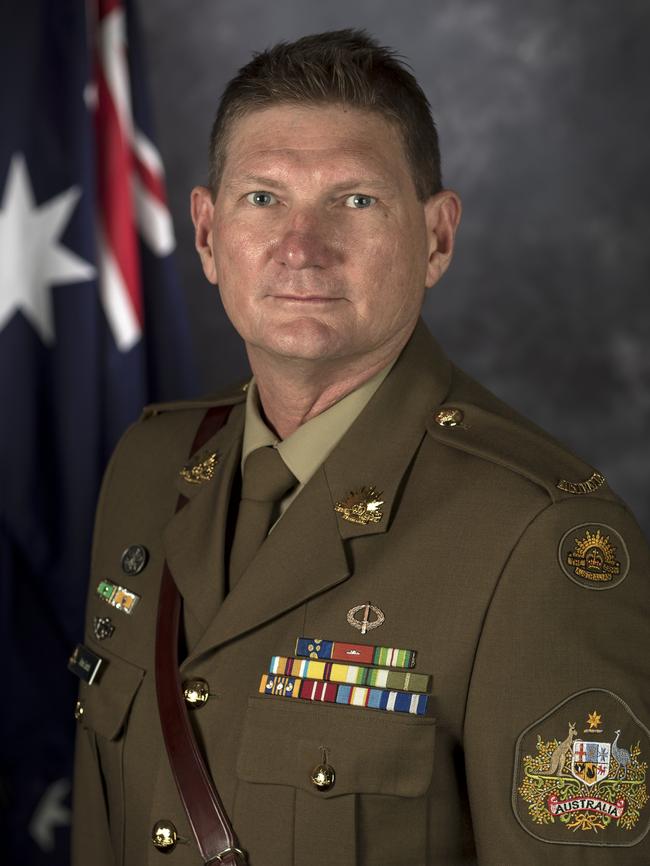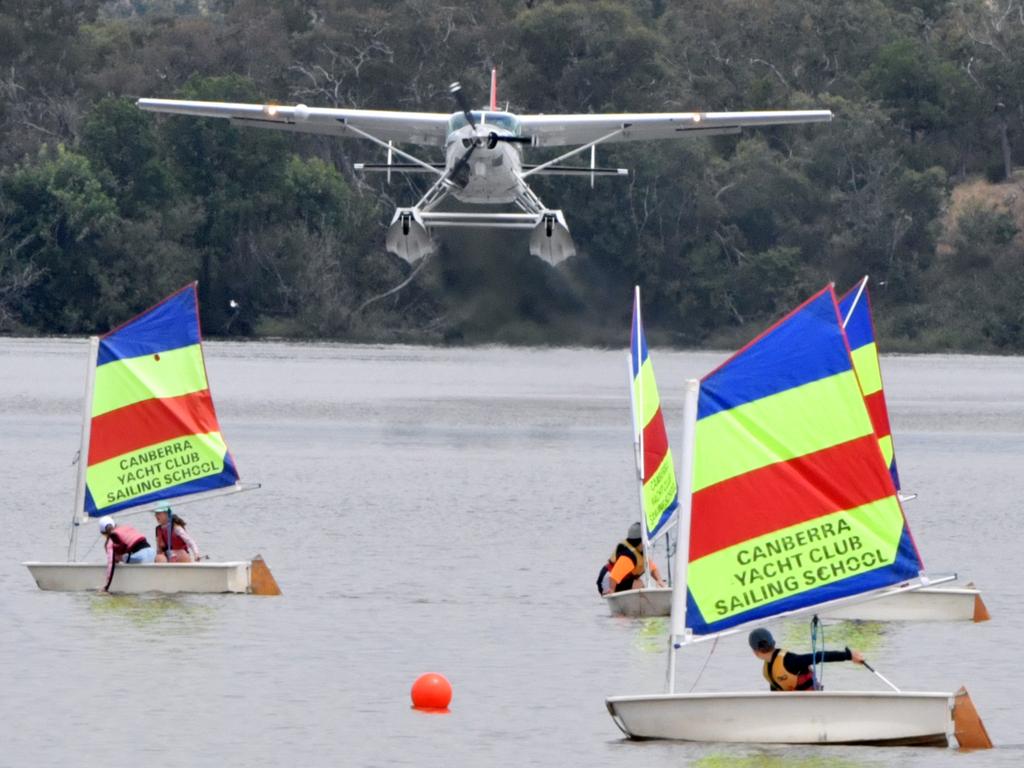Top special forces soldier steps down over leg-drink photo
The nation’s most senior special forces soldier has voluntarily stood aside after the emergence of a photo of him drinking from a prosthetic leg in Afghanistan.

The nation’s most senior special forces soldier has voluntarily stood aside after the emergence of a photo of him drinking from a souvenired prosthetic leg in the SAS’s on-base bar in Afghanistan.
Warrant Officer Class One John Letch, the command sergeant major and right-hand man to the new Special Operations Commander of Australia, Major General Paul Kenny, has relinquished his high-profile position and is understood to be considering his options.
The Australian can also reveal former Special Air Service Regiment and Special Operations Task Group commander Jono Beesley has left the army following the publication of the Brereton war crimes report last month.
WO1 Letch, a former SASR sergeant major, was recently identified on social media as the man drinking from the artificial limb in a pixelated photo published by The Guardian.
The leg was taken from a Taliban insurgent, despite rules forbidding the taking of war trophies, and was used as a drinking vessel by SAS soldiers at the unofficial Tarin Kowt bar, known as the Fat Lady’s Arms.
Former SAS captain and Liberal MP Andrew Hastie said WO1 Letch, with whom he served for two years in the same SAS squadron, was a good soldier who always put his men first.
“We deployed together to Afghanistan in 2013. He was my squadron sergeant major and looked after our welfare during tough times,” he said.
“John is an honourable man who did the wrong thing more than a decade ago. He accepts full responsibility for it. No one is perfect.”

The photo is widely believed within the army to have been leaked by soldiers facing potential criminal charges arising from the four-year inquiry. Photos are believed to exist showing other senior soldiers and officers drinking from the leg.
WO1 Letch was appointed to support General Kenny to implement Defence’s response to the Brereton inquiry, imposing discipline on non-commissioned ranks and supporting cultural change.
Brigadier Beesley was SASR commander from 2011-12 — a period when the regiment was facing serious cultural problems. He was SOTG commander in Afghanistan from January to July 2013 — a command marred by the infamous “severed hands” incident.
In the April 2013 incident, an SAS corporal severed a hand from each of three dead insurgents with a surgical scalpel. According to the ABC’s “Afghan Files”, the corporal said he was retrieving “biometric material” to obtain the insurgents’ fingerprints back at base because there was no time to do so in the field.
The soldier was interrupted by then captain Hastie, who challenged the decision to remove the hands.
“What the f..k are you doing?” he reportedly said.
Mr Hastie reported the incident up the chain of command. An inquiry was held and guidelines put in place to make it clear “the mutilation and otherwise maltreatment of human remains” was not permitted.
Brigadier Beesley, who most recently headed Defence’s Joint Counter Improvised Threat Task Force, followed his father, Reg Beesley, who commanded SASR in the early 80s.
A former colleague said the taskforce had closed down.
“Apparently there wasn’t a 1-Star position for him to go into next year, so it’s likely a case of ‘up or out’,” the source said.
The Australian contacted WO1 Letch and Brigadier Beesley through Defence, but they declined the chance to comment.
A source said WO1 Letch had taken “full ownership of his actions and the discredit he had brought to the army” for what had been a normalised but inappropriate team-building activity.
Their decisions come as Defence grapples with how to address the responsibility of commanders for the war crimes identified in the Brereton inquiry, amid a backlash from soldiers over the loss of Meritorious Unit Citations and the disbandment of SASR’s 2 Squadron.
In his report for the Inspector-General of the Australian Defence Force, Paul Brereton found credible information that up to 25 Australian soldiers were involved in the murder of 39 Afghan civilians and prisoners.
He found no credible information commanders had knowledge of, or were recklessly indifferent to, crimes committed and concealed at patrol commander level, but found special operations troop, squadron and task group commanders bore “moral command responsibility and accountability for what happened under their command”.
Chief of the Defence Force Angus Campbell is finalising Defence’s response to the inquiry, which will include potential punishments for senior officers, including the loss of medals.
His decision to revoke the Meritorious Unit Citations of all SOTG soldiers from 2007-13 was overruled by Scott Morrison, who said the government would ensure war crimes allegations against a small number of soldiers “do not reflect on the many thousands …who serve today and who have served before”.
If you are a current or former ADF member, or a relative, and need counselling or support, contact the Defence All-Hours Support Line on 1800 628 036 or Open Arms on 1800 011 046.








To join the conversation, please log in. Don't have an account? Register
Join the conversation, you are commenting as Logout